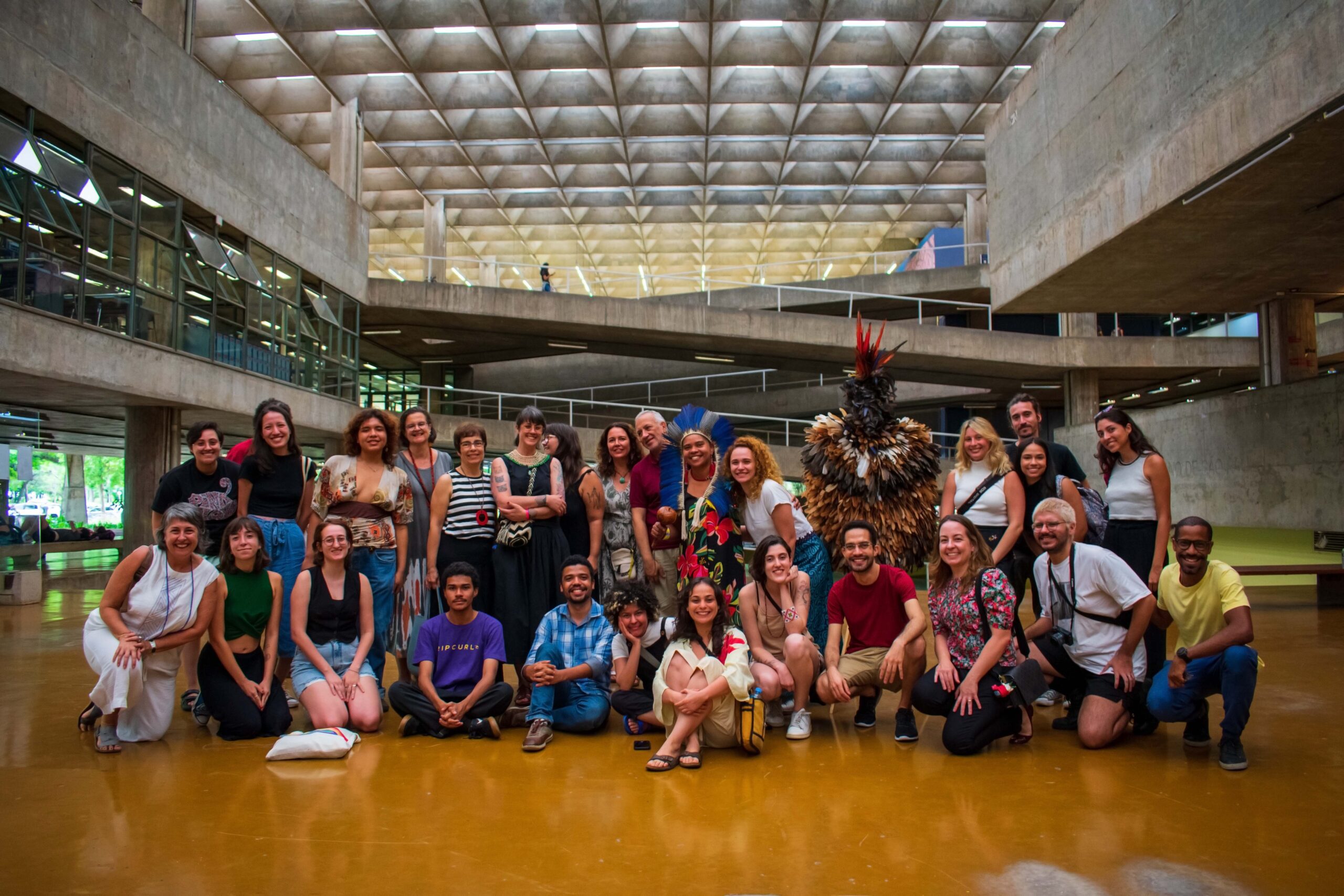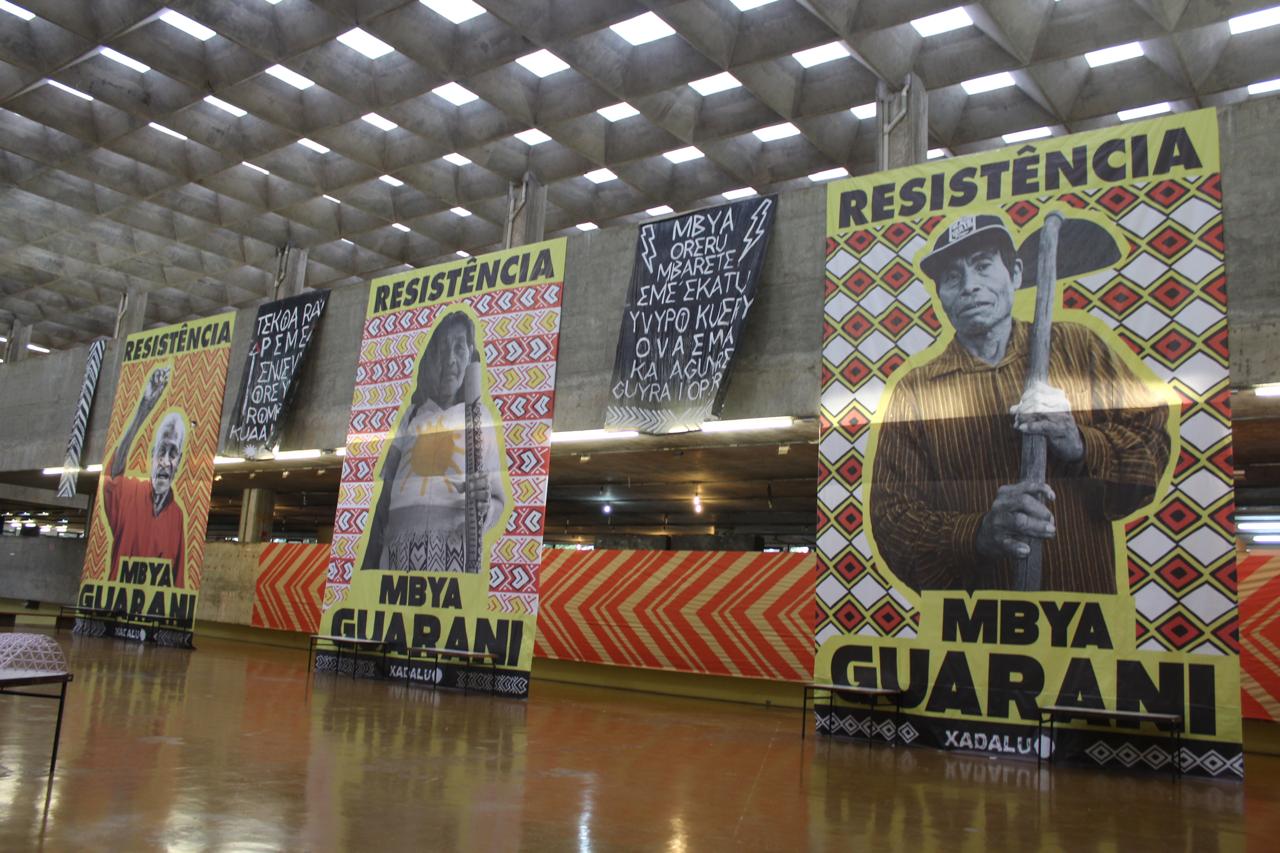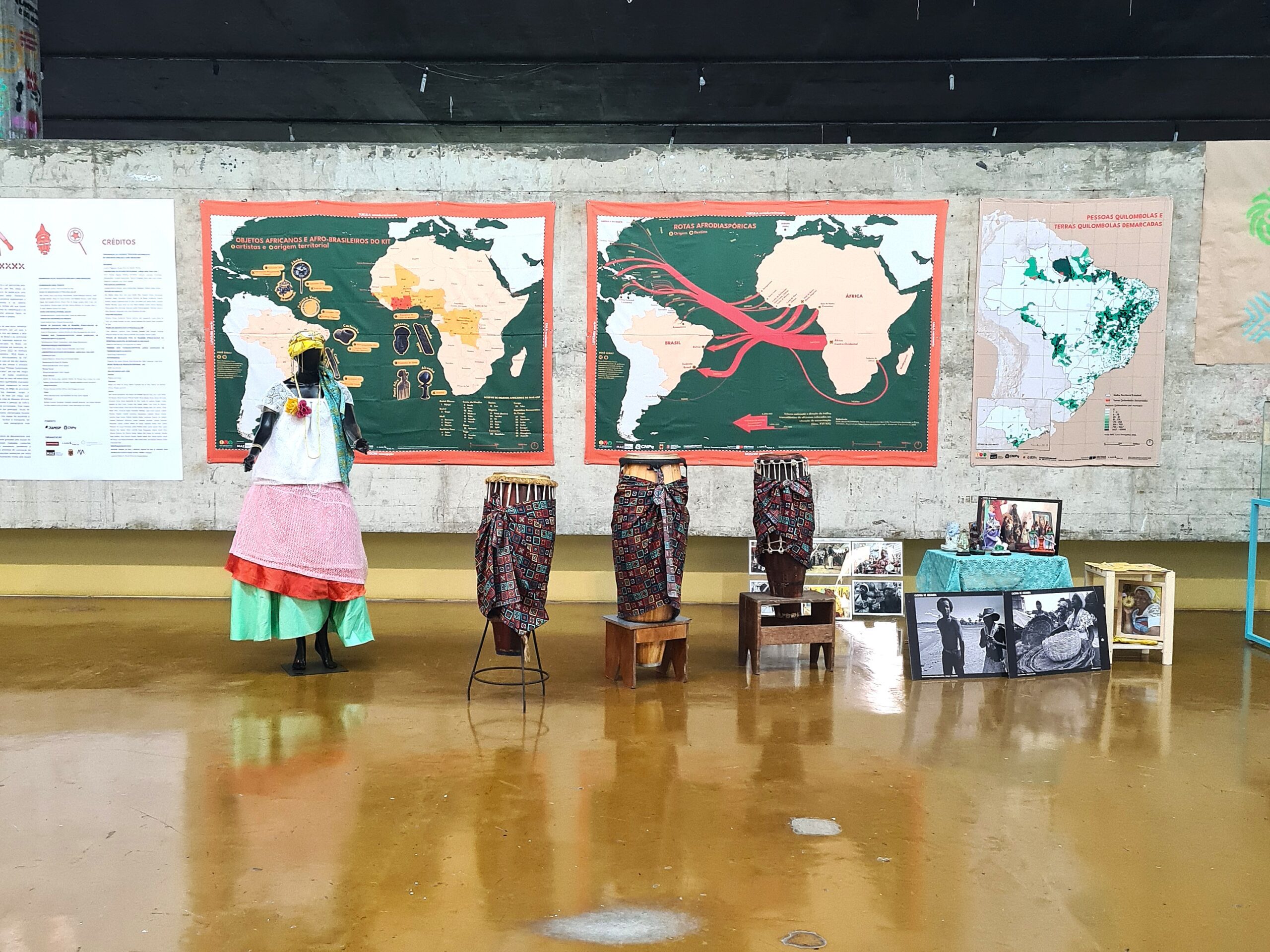We are the “Labya-Yala. Laboratory of Decolonial Studies of FAU-USP”, implemented in the Department of History and Aesthetics of the Project – AUH, started as a study group in 2019, together with the extension program “Quintas Ameríndias”, coordinated since then by Prof. Dr. Renata Martins and Prof. Luciano Migliaccio, within the scope of the FAPESP Young Researcher Project Cifrado Baroque (2016-2021), and later of the FAPESP Young Researcher Project 2 “Barroco Açu” (2022-2027).
The laboratory's name derives from the expression "Abya-Yala," originating from the Kuna language (of the indigenous peoples of Panama and Colombia), referring to the American continent. "Mature Earth," "Mother Earth," or "Living Earth" are some possible translations to replace the term "America" adopted by European colonizers. In this sense, our decolonial approach seeks to include and strengthen the protagonism of Amerindian cultures, as well as the African diasporas and exchanges with Asia, in the fields of Art History, Architecture, and Territories. Therefore, our interventions at FAU-USP, both at the undergraduate and graduate levels, are transversal and transdisciplinary, permanently incorporating the knowledge of indigenous, traditional, and peripheral peoples into teaching, culture, and outreach.
These activities involve partner projects, such as "Amazônia Revelada" (Revealed Amazon) or the African and Afro-Brazilian educational kit from the MAE-USP educational center; associated researchers and collaborators from various disciplines and faculties, from Brazil and abroad, with a focus on the Amazon; FAPESP, CNPq, and PUB USP-Amazônia scholarship holders at FAU-USP; FAU-USP in the Amazon; and unfunded research at FAU-USP, at the Scientific Initiation, Master's, Doctorate, and Postdoctorate levels; as well as researchers and students from USP and other universities.
Thus, as a continuation of the Abya-Yala and Global Asia study groups, and the Manis "Women and Arts" group, Labya-Yala promotes decolonial and countercolonial approaches at FAU-USP, from the perspective of the Global South, especially the Pan-Amazon. It works to renew existing lines of research and open new ones by promoting the protagonism and knowledge of traditional communities in the history of arts, architecture, and territory. In undergraduate education, for example, new courses were introduced at FAU-USP, focusing on Amerindian arts, African arts, and Asian arts in a global context, as well as "Amazonias of All Times: Arts, Architectures, Territories."
An essential part of our work is the "Amerindian Thursdays," a series of events that addresses transdisciplinary themes related to the knowledge of indigenous peoples, with a focus on the Amazon. In the "Amerindian Thursdays in the Oca. Amazons from the Margins to the Extremes: Labya-Yala. Laboratory of Decolonial Studies at FAU-USP," which will take place within the scope of the "Indigenous, Riverine, and Urban Amazon" course of the Graduate Program in Architecture (PPGAU/FAU-USP), with the Federal University of Paraíba (UFPA), the Graduate Program in Architecture (PPGDS) of the Emilio Goeldi Museum (MPEG), and Stony Brook University (SUNY), in collaboration with the "Modern Amazon: Utopias and Dystopias" course of the Graduate Program in Architecture (PPGD/UFAM), we will present at the 14th International Architecture Biennial of São Paulo the discussions and partnerships resulting from years of work by the laboratory for inclusive and decolonized architectural education.
Free
Registration:
Registrations must be made here.
Selection will be made in order of registration.
Registration will be open until the start of the activity, on site, as long as there are spaces available.




